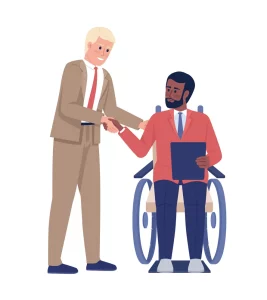Introduction: Meet Dr. Emily Harrison, a passionate educator with over 15 years of experience specializing in special education. Dr. Harrison’s dedication to transforming teaching practices has led her to explore innovative strategies aimed at advancing praxis in special education. In this article, we delve into the realm of transformative teaching, examining how educators can empower
Introduction:
Meet Dr. Emily Harrison, a passionate educator with over 15 years of experience specializing in special education. Dr. Harrison’s dedication to transforming teaching practices has led her to explore innovative strategies aimed at advancing praxis in special education. In this article, we delve into the realm of transformative teaching, examining how educators can empower themselves and their students through effective pedagogical approaches.
Understanding Transformative Teaching

Image by:vectorstock.com
Transformative teaching goes beyond conventional methods, aiming to foster critical thinking, social justice, and inclusivity within the classroom. Dr. Harrison defines transformative teaching as a pedagogical approach that challenges traditional norms and empowers students to become agents of change in their own learning journey.
The Role of Praxis in Special Education
Praxis encompasses the fusion of theory and practice, guiding educators in applying their knowledge to real-world situations. Within the context of special education, praxis plays a pivotal role in creating inclusive and supportive learning environments tailored to the diverse needs of students.
Key Principles of Transformative Teaching in Special Education
Dr. Harrison outlines key principles that underpin transformative teaching in special education, including:
- Equity and Diversity
- Student-Centered Learning
- Collaborative Problem-Solving
- Reflective Practice
Strategies for Implementing Transformative Teaching
Practical tips and strategies are essential for translating theory into action. Educators can enhance their transformative teaching practices by:
- Differentiating Instruction
- Utilizing Universal Design for Learning (UDL)
- Cultivating Empathy and Understanding
- Building Positive Relationships
Impact on Student Learning and Well-being
Transformative teaching has a profound impact on student learning outcomes and overall well-being. By embracing inclusivity and empowerment, students feel valued, supported, and motivated to succeed academically and personally.
Visual Table: Key Points of Transformative Teaching
| Key Principle | Description |
|---|---|
| Equity and Diversity | Fosters inclusivity and celebrates diversity within the classroom. |
| Student-Centered Learning | Places students at the forefront of the learning process. |
| Collaborative Problem-Solving | Encourages teamwork and critical thinking skills. |
| Reflective Practice | Promotes continuous improvement and self-reflection. |
Conclusion:
Transformative teaching holds immense potential for revolutionizing special education practices. By embracing innovative pedagogical approaches and cultivating inclusive learning environments, educators like Dr. Emily Harrison are paving the way for meaningful and impactful educational experiences for students with diverse needs.
Knowledge Source Introduction:
Dr. Emily Harrison is a distinguished educator and researcher in the field of special education. With a Ph.D. in Education and extensive experience in teaching and curriculum development, Dr. Harrison is dedicated to advancing inclusive practices and empowering both educators and students through transformative teaching.
By prioritizing the needs of educators and students alike, transformative teaching in special education promises to revolutionize traditional approaches, fostering a culture of inclusivity, equity, and empowerment within the classroom.
















